Pros and Cons of Metal and Asphalt Roofing
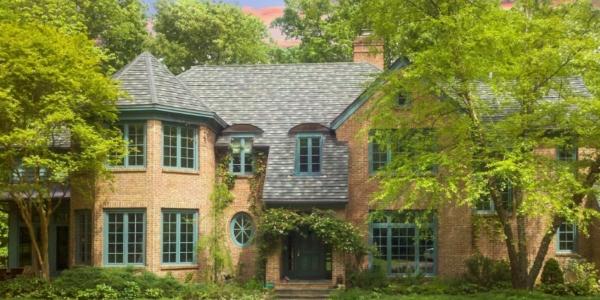
By Trevor Underwood, DECRA Metal Roofing.
In 1901 asphalt shingles revolutionized the industry, now innovative technology has made metal roofing the preferred choice.
While metal roofing is currently in high demand, it wasn’t always the second most desired roofing material in the U.S. Asphalt shingles have been the favored material over wood shingles and clay tiles due to their durability and lower cost for the last century. Once metal roofing was introduced to the industry, it quickly became the popular roofing choice because it is more durable, has a longer lifespan and is a greener material.
Metal roofing can provide the same look as asphalt shingles but boasts superior durability, longevity and energy efficiency – among other benefits. Though the initial cost of metal roofing is slightly higher than asphalt shingles, metal roofing is often a better investment in the long run and provides a much higher ROI.
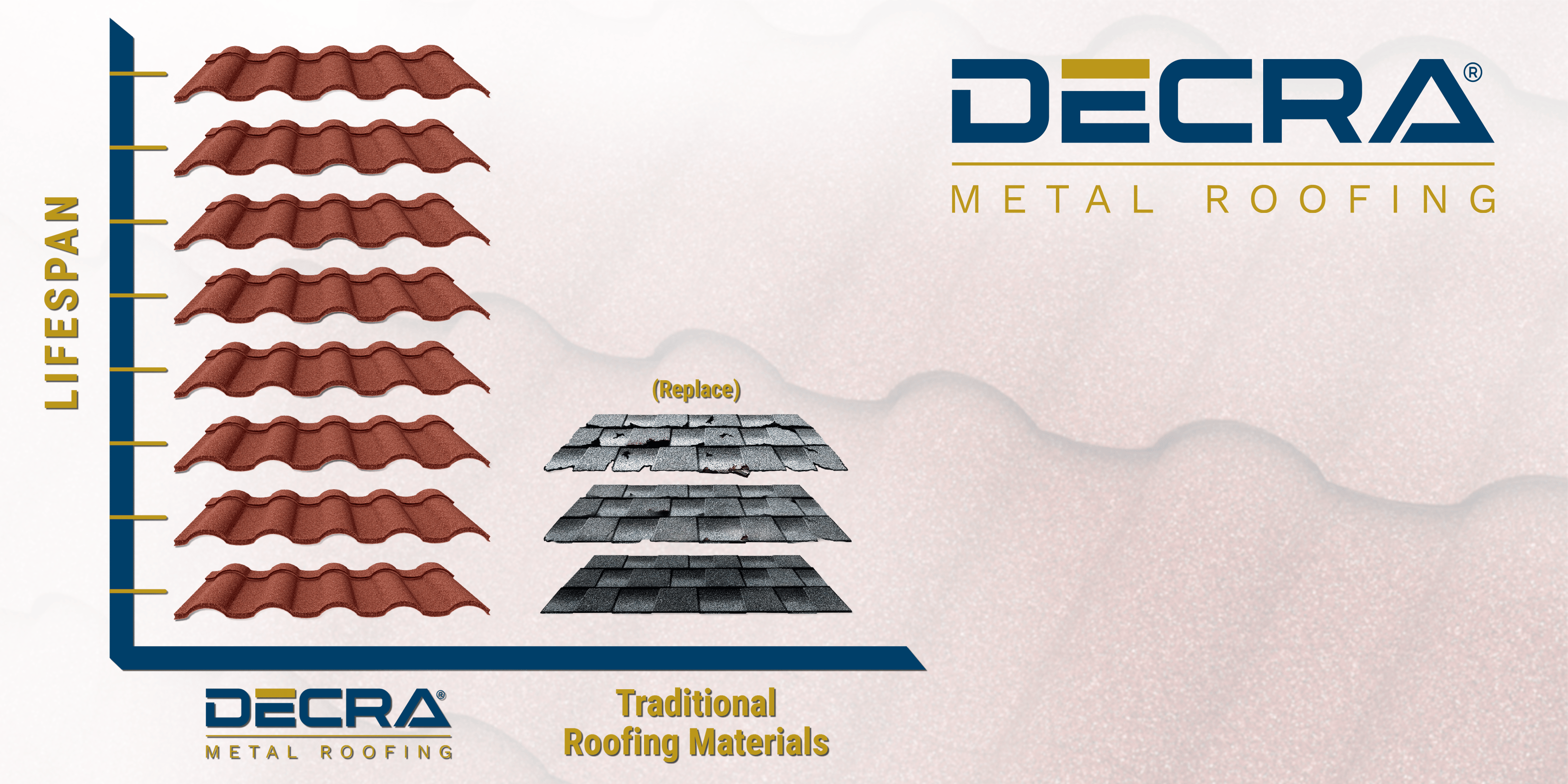
If you’re deciding between asphalt shingles or metal roofing for your home, keep reading to learn:
- What is an asphalt shingle roof?
- What is metal roofing?
- Which is better: asphalt shingles or metal roofing?
What is asphalt shingle roofing?
Asphalt shingles are typically made with a base material, such as felt or fiberglass. The base material is coated with asphalt, a petroleum-based product that serves as a waterproofing agent. The top surface is embedded with mineral or ceramic granules that protect the asphalt coating from UV radiation and the elements.
The two most common styles of asphalt shingles are three-tab shingles and architectural shingles.
Three-tab asphalt shingles are thinner and identical in size, whereas architectural shingles are thicker and vary in size and shape to create a more dimensional roof.

One of the biggest benefits of asphalt shingles is its price. Asphalt shingles are well-known as the cheapest roofing material – but price and quality go hand-in-hand. Asphalt shingles have numerous shortcomings when it comes to quality, durability, longevity and energy efficiency.
The biggest drawback of asphalt shingles is their longevity.
Asphalt shingles need to be replaced as often as every 12 years. This is worth noting if you’re looking to add solar panels to your roof since solar panels can easily last 25 years or more.
Durability is another major drawback to asphalt shingles.
Asphalt shingles are prone to cracking or warping around the edges after being exposed to the elements for just a few years. Homeowners in regions prone to hail, high winds, tornados or hurricanes should consider a more durable roofing material since roofing materials can impact insurance premiums. And insurance companies aren’t shy about their preference for homes with a durable roof.
As mentioned by property expert Michael Ryan:
“Not all roofing materials are created equal when it comes to insurance. Asphalt is much more susceptible to damage from storms, hail, hurricanes and tornadoes. This means that homeowners with asphalt roofs will likely pay more for their insurance than those with other types of roofs.”
What is metal roofing?
Metal roofing has been used in the industrial sector for centuries due to its durability, longevity and energy efficiency. However, it wasn't widely used in residential settings because homeowners perceived it as "too industrial looking."
That perception changed when stone-coated metal roofing was introduced in 1957.
When stone-coated metal roofing entered the market, it gave homeowners the high-performance strength of metal roofing without the industrial appearance.
Stone-coated metal roofs are made from steel sheets that are then coated with stone granules, providing flexibility in shape and a range of colors and textures to replicate the look of traditional materials like asphalt shingles, clay tiles and wood shakes.
Can you tell the difference?
One of these roofs is a DECRA metal roof and the other is an asphalt shingle roof.

Answer: The roof on the right is a metal roof. The roof on the left is an asphalt shingle roof.
In addition to being one of the strongest and longest-lasting roofs on the market, metal roofing is also one of the most energy-efficient and environmentally friendly roofing options.
Which is better: Asphalt shingles or metal roofing?
So, which is better: asphalt shingles or metal roofing?
Here’s how the two stack up when it comes to cost, ROI, lifespan, energy efficiency, sustainability, durability and maintenance.
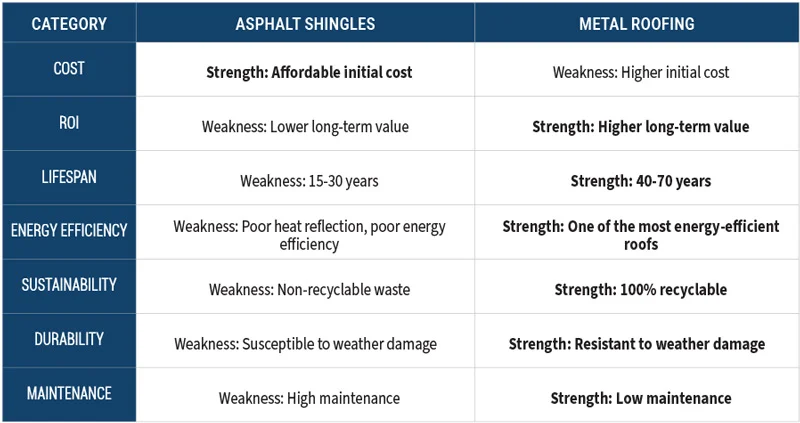
While asphalt shingles have a slightly lower cost of installation, the long-term ROI of metal roofing often makes it the better investment option. The ROI of metal roofing is tough to beat – mainly due to their superior durability.
Metal roofs are weather-resistant and can withstand the test of time in some of the harshest climates in the world.
In fact, Progressive calls out loud and clear on their website that “your homeowners insurance may cost less if you have a newer roof made of more durable materials, like metal…”
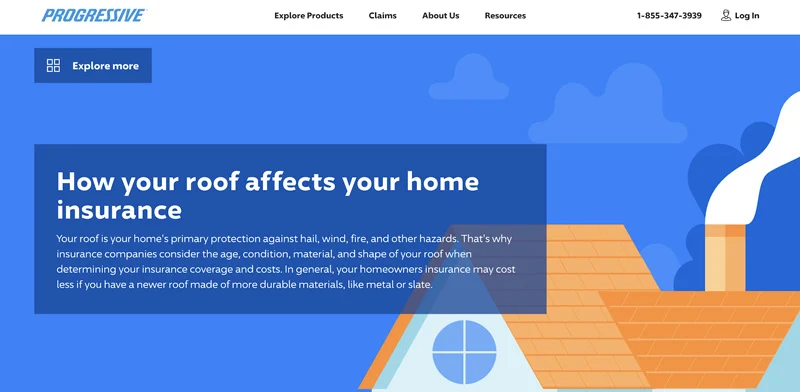
Metal roofs can endure everything from high winds to hail and nearly anything Mother Nature has to offer, including:
- Fire: As a non-combustible material, metal roofs have the highest-possible Class 4 fire rating.
- Hurricanes and tornadoes: Some metal roofing products, such as DECRA Metal Roofing, meet the high-velocity hurricane zone requirements of Miami-Dade County, which has the toughest building requirements for wind resistance in the nation.
- Earthquakes: Metal roofs can withstand earthquakes in seismically active regions and provide reinforcing strength to the building.
- Salt air and humidity: Metal roofs are resistant to rust and oxidation.
- Snow and ice: Non-porous metal roofs can withstand repeated freeze and thaw cycles.
Metal roofing also comes out on top when it comes to:
- Lifespan: Metal roofs are one of the longest-lasting roofing materials and last as much as three times longer than traditional roofing materials such as asphalt shingles, which need to be replaced as often as every 12 years.
- Maintenance and repair costs: Unlike asphalt shingles, metal roofs require little-to-no maintenance.
- Weight: Asphalt shingles are heavy and require a strong support structure to bear their weight, which can increase installation costs. A top-heavy roof is not ideal for homes in areas prone to earthquakes, high winds or heavy snow. Metal roofing is one of the lightest roofing materials on the market.
- Energy-efficiency: Metal roofs are one of the most energy-efficient roofing materials since they reflect heat up and away from the home. Asphalt shingles absorb heat from the sun like a sponge and radiate the heat down into the home long after the sun has set.
- Environmentally friendly: Metal roofs are 100% recyclable and a sustainable product. This is a huge benefit when compared to petroleum-based asphalt roofs which contribute more than 11 million tons of waste to landfills each year (the equivalent to 3,068 Olympic-size swimming pools of waste).
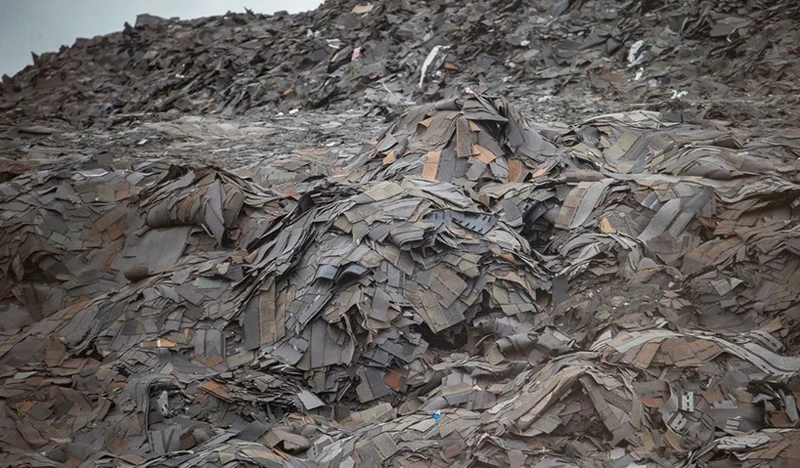
Request a complimentary sample of DECRA’s metal shingle roofing
DECRA Metal Roofing’s line of metal shingle roofing products feature thick-cut edges that provide the dimensionality of asphalt shingles, but last two to three times longer and are backed by the strength of stone-coated steel.
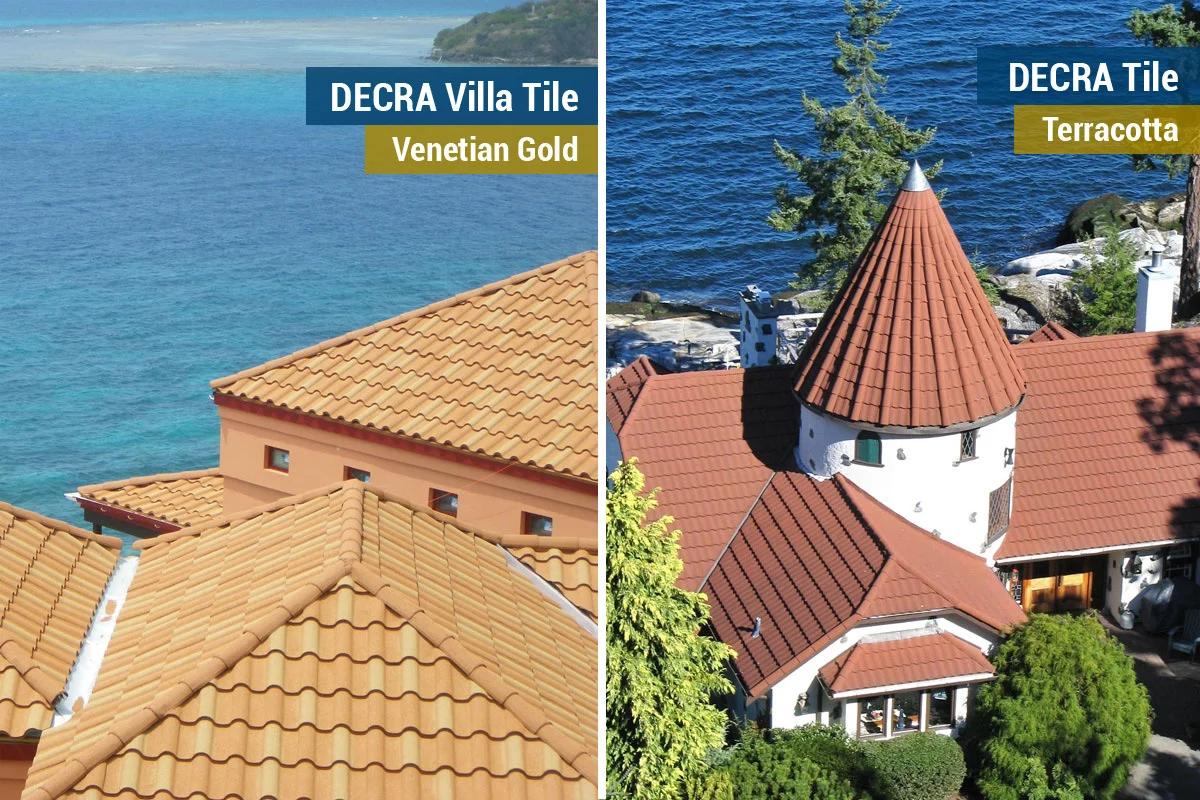
Original article source: DECRA Metal Roofing
Learn more about DECRA Metal Roofing in their Coffee Shop Directory or visit www.DECRA.com.
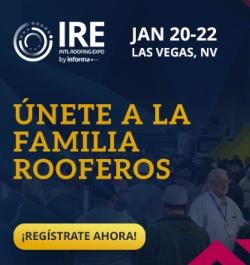
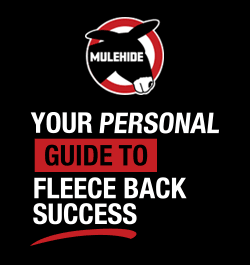


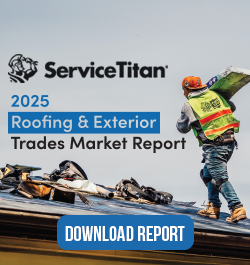








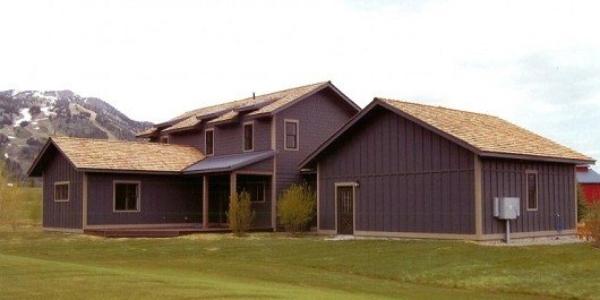



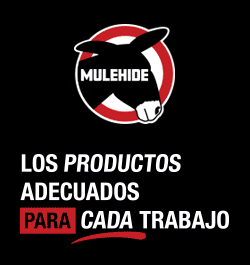

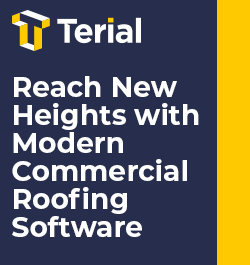

Comments
Leave a Reply
Have an account? Login to leave a comment!
Sign In